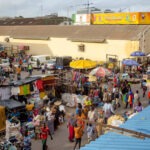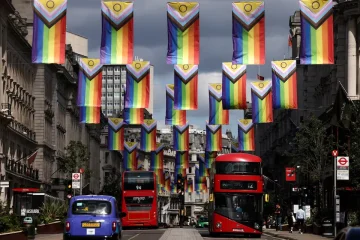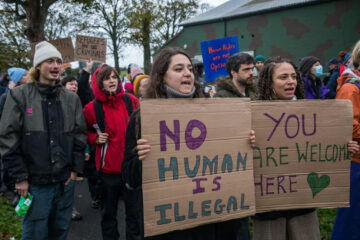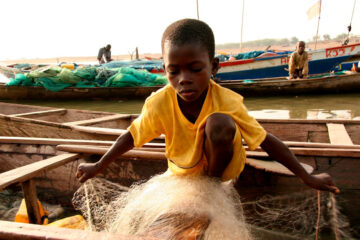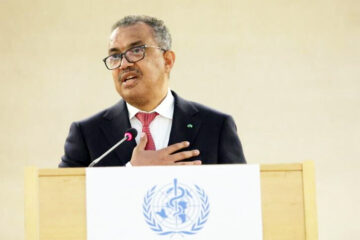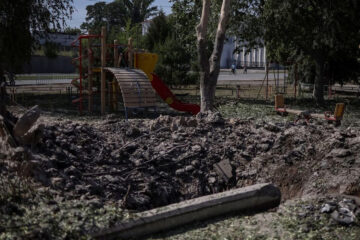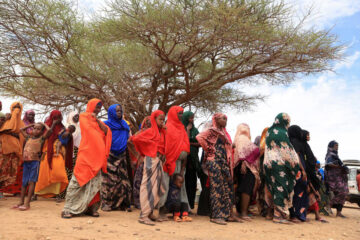THE Mauritius Supreme Court has declared unconstitutional a law that criminalises consensual same-sex acts between adult men. The decision boosts the trend in the Southern African Development Community (SADC) region towards decriminalisation. Now, a slight majority – nine out of 16 member states – do not prohibit gay and lesbian sexual relations.
I have researched and taught human rights law in Africa, including the rights of sexual minorities, for over three decades, and closely follow the work of the African Commission on Human and Peoples’ Rights.

The African Commission, as the continent’s human rights custodian, should lend its unequivocal support to the decriminalisation trend. This is particularly significant as attempts are made to further criminalise and stigmatise sexual minorities in parts of Africa.
The commission has not yet expressed its view on the decision. Its 77th ordinary session, starting on 20 October 2023 in Arusha, Tanzania, is an opportunity to do so. It should build on its 2014 guidance to African states on eradicating violence based on sexual orientation and gender identity.
Mauritius court ruling
The Mauritian Supreme Court found that section 250 of the 1838 Mauritius Criminal Code, which criminalises anal sex between two consenting adult men, violates the 1968 Mauritius constitution.
The litigant, Ah Seek, a gay Mauritian man and board member of the Mauritian NGO Collectif-Arc-en-Ciel, invoked a number of constitutional grounds. However, the court based its decision on the most directly relevant ground: the right not to be discriminated against.
In addressing two issues that could militate against a finding in Ah Seek’s favour, the court relied on the approach of other courts in the SADC region. The 2021 judgment by Botswana’s Court of Appeal was particularly relevant. This judgment held that the constitutionally protected ground of “sex” in the Botswana constitution encompassed “sexual orientation”.
The first issue was the contention that Mauritius’ constitution does not explicitly prohibit discrimination based on “sexual orientation”. The relevant provision (section 16) forbids discrimination on the basis of seven specified grounds, including sex.
The Mauritian court concluded that the word “sex” in section 16 of the constitution includes “sexual orientation”.
The court also emphasised the country’s international human rights commitments. It said that, as a state party to the International Covenant on Civil and Political Rights, Mauritius was expected to interpret its constitution in line with this treaty.
The second issue was whether the rarity of prosecutions removed the need for the court to decide. Referring to a judgment by the South African Constitutional Court, the Mauritius court held that the mere threat of arrest, prosecution and conviction
hangs like the sword of Damocles over the heads of homosexual men.
The court therefore concluded that the constitution protected everyone from discrimination based on their sexual orientation, whatever it might be.
When it was given an opportunity to show any legitimate purpose for this form of discrimination, the state merely made reference to same-sex relations as a “highly sensitive issue” due to the “delicate socio-cultural and religious fabric of Mauritian society”. Rejecting these as justifications for discrimination, the court underlined that Mauritius was a secular state.
Regional trend
Greater societal acceptance of homosexuality can be both a catalyst for and a consequence of the decriminalisation of same-sex relationships.
In a recent survey by the independent African surveys network Afrobarometer, Mauritius featured prominently as a country in which tolerance (towards an LGBT person as a neighbour) had increased from 2014 to 2022.
Nine of the 11 African countries with an above-average tolerance percentage towards LGBT persons were from the SADC. All of these 11 states, except Eswatini, have decriminalised “sodomy laws”.
The conditions for decriminalisation seem to be converging in Eswatini. Its population displays a relatively high level of acceptance (of 42%) in the survey. Also, its Supreme Court has signalled some openness to uphold LGBT persons’ rights.
Besides Eswatini, other SADC member states that still retain “sodomy” laws are Comoros, Malawi, Namibia, Tanzania, Zambia and Zimbabwe. With the exception of the Comoros, the laws of these states are relics from British colonial times, when “sodomy” laws were imposed as part of a colonial “civilising” mission. The Mauritius Supreme Court noted that, as a colonial import, section 250 did not reflect Mauritian values and was not the “expression of domestic democratic will”.
Today, just over half of the SADC states do not criminalise same-sex relationships between consenting adults. The Democratic Republic of Congo never legislated on this matter. In Lesotho (2012), the Seychelles (2016), Mozambique (2015) and Angola (2019), the legislature in the last decade or so adopted a new version of the penal code. These offences, stemming from the English common law or the 1886 Portuguese Penal Code, were omitted. In Madagascar, the penal code criminalises consensual same-sex acts only with a person under 21 years old.
Still, the situation remains in flux. In Malawi and Namibia, litigation on related penal code provisions is pending. In Malawi, then-President Joyce Banda in 2012 committed to repealing these laws. There was also a moratorium on arrests and prosecutions between 2012 and 2016 and a court-ordered review of the constitutionality of “sodomy laws”.
In Namibia, the Supreme Court decided in 2023 that Namibia must recognise same-sex marriages validly concluded outside the country.
Diverging trend
In the rest of Africa, the position of sexual minorities is much more precarious. Thirty-one (almost 58%) of countries still criminalise consensual same-sex acts between adults. The trend is towards more restrictive laws and harsher punishment.
- In Uganda, President Yoweri Museveni has signed into law the Anti-Homosexuality Act.
- In Ghana, the Promotion of Proper Human Sexual Rights and Ghanaian Family Values Bill is being considered.
- In Kenya, the anti-gay Family Protection Bill carries a 50-year jail term. However, the Supreme Court decided in February 2023 to allow the NGO National Gay and Lesbian Rights Commission to be registered.
These laws were initiated as private members’ bills. They are driven by individuals rather than any political party’s agenda, and bolstered by an anti-LGBT solidarity conference of African parliamentarians.
African Commission’s role
Against this background of opposing forces and divergent trends, the role of the African Commission is all the more important. The commission itself has sent mixed signals. It affirmed the right to dignity and bodily integrity of sexual and gender minorities. But it also refused to grant observer status to NGOs working to promote these rights.





